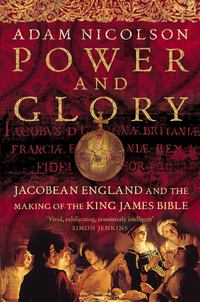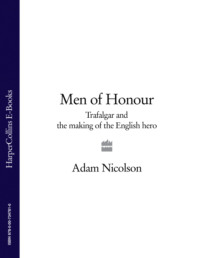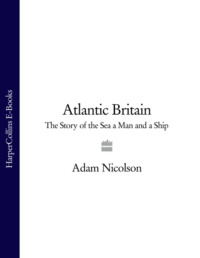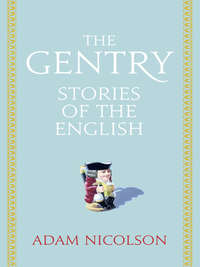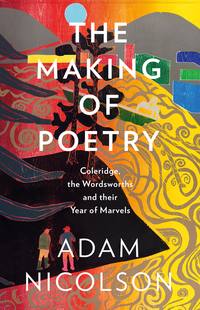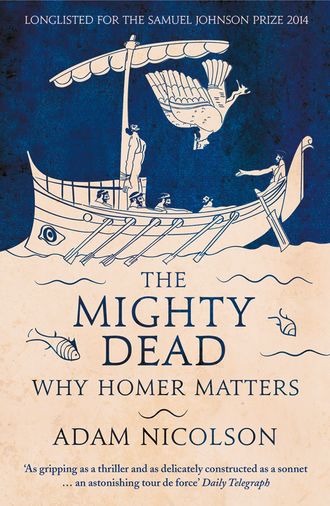
Полная версия
The Mighty Dead: Why Homer Matters
The name Homer – which is pronounced in Greek with a short ‘o’ and a long ‘e’, Homeeros, making it stranger than you had imagined, from a more distant world – may mean ‘blind’, at least in the dialect of Greek spoken on Lesbos. From the name came the tradition that Homer was blind, although that too was fiercely disputed by the ancient authors.
Or it may mean something stranger still: a ‘connector’, or even ‘bond’. Homer, perhaps, was the man who joined together, in the way of the poet, things which might otherwise have lived apart: different elements of the inherited stories; or those stories and the audiences who listened to his telling of them.
There is another tradition, related to that one, which runs through all his ancient biographies. Homer was not his original name, perhaps only given him when he went blind or became a hostage (another possible etymology). His original name in this version was Melesigenes, perhaps because he was born by the river Meles, which runs through Smyrna, now Izmir, or more intriguingly because the name can mean ‘caring for his clan’. This Homer is to be seen as the man who cared for his people, his inheritance, his race descent, the way he came into being, his origins. Homer is what looked after the source, what found, remembered and transmitted truth from the distant past. In that meaning of his name, his essence is not his smart newness, his ability to connect, but the antiquity of the tales he tells. He is the embodiment of retrospect.
All poetry is memorial. Much of it is elegy. The earliest to have been found was dug up by Victorian archaeologists in Sumer, in what is now Iraq, on a tablet marked with wedge-shaped cuneiform symbols pressed into the wet clay before it dried. The fragmentary poems in the clay were written in about 2600 BC, perhaps two thousand years before the Homeric epics were first written on papyrus. But that first written Sumerian poetry is not about the springtime of the world. Poetry begins by looking back to the beautiful past, a song about Ashnan, the goddess of grain, and her seven sons, opening with these chantable, formulaic repetitive lines:
U re u re na-nam
Gi re gi re na-nam
Mu re mu re na-nam.
In those days, now it was in those days,
In those nights, now it was in those nights,
In those years, now it was in those years.
As far back as you can reach, poets have been looking back, their poetry living in the gap that opens between now and then. Another song, from Ur in Iraq, written down at about the same time, instructs the singer to
attend to what is old, and not allow it to be neglected.
Let nothing be neglected in practice,
Let him apply himself to the art of singing
Let the scribe stand by and catch the songs in his handwriting
Let the singer stand by and speak to the scribe from the songs
So that they will be made to last in the scribal college
So that none of my praise-song should perish
So that none of my words should be dropped from the tradition.
This song is what Melesigenes, Homer’s hidden name, actually means. You might think of Homer as the skilled reteller of his people’s stories. But he is more than that; the poems are the passed baton itself, ancient meaning enshrined in the remembered word.
There is one more story, often repeated in the fictional biographies of him that were written throughout antiquity, which hints at Homer’s unfittedness for the ordinary world. It exists in many versions, but the most articulate has survived in a manuscript transcribed in the eleventh century AD and now in the great royal library in the Escorial outside Madrid.
Homer is at the end of his life, sitting on the beach on the Cycladean island of Ios, after a life of travelling and singing his poems in many places in the Greek world. This is not his home. As he sits there, alone and blind, he hears some fishermen coming up the beach towards him. They have been at sea, and Homer calls out to them: ‘Fishermen from Arcadia [it is unexplained why it should be Arcadia in the Peloponnese when he is in the Cyclades], have we caught anything?’ There is something charming, or perhaps self-ingratiating, in that ‘we’. But they reply unkindly. ‘All that we caught we have left behind and all that we missed we carry.’ By which they mean that their fishing had been useless, but as they sat out at sea with nothing to do, they searched each other’s bodies for lice. Those lice they had caught, they killed and threw into the sea; those they missed were still on them in their clothes.
It was a joke, a riddle, a tease for a blind old man, but he didn’t understand it, and, crushed by the loneliness and depression that came in the wake of that failure to comprehend, he died on Ios, where he was buried under an epitaph he had written himself:
Here the earth conceals that sacred head,
The setter-in-beautiful-order [kosmētora] of heroic men,
the godly Homer.
According to that much-repeated story, it was the triviality of the joke, a ridiculing of incapacity, even a lack of nobility in others, that finally killed him. This is Homer as the Great Outsider, blind, from beyond our ken, the figure who does not belong in the world where everyone knows everyone else, the man who has yet to enter the restaurant or the drawing room. He is outside our normality, scarcely even aware of the merry din within, with an austerity about him, a grandeur and an urgent, other reality.
Homer – allied to his neighbour and contemporary, Isaiah, another great speaker of wisdom, whose dates and identity also stretch across many generations from at least 1500 to 600 BC – is the archetype from which every great seer is descended: he is Lear on the heath, Rousseau in a reverie on his island in the Lac de Bienne, the Ancient Mariner who waylays the wedding guest at the bridegroom’s door, but who will never enter that feast. Homer exists in his other world, almost unknowably separate from us in time and space, a realm whose distance allows ideas of transcendence to develop around him. His distance from us is itself an imaginative space which his own greatness expands to fill.
This is no modern effect: it was the effect Homer had on the ancient Greeks, as a voice from the distant past, even a voice from the silence, the voice of greatness untrammelled by any connection with our present mundanities. Homer doesn’t describe the world of heroes: he is the world of heroes. As his epitaph said, he made their kosmos, a word which in Greek can mean order, world, beauty and honour. It is used in the Iliad when the commanders set their men in order for battle. It is used to describe the order in which a poet sets the elements of his tale. Those qualities are all different dimensions of one thing. Everything one might associate with the heroic – nobility, directness, vitality, scale, unflinching regard for truth, courage, adventurousness, coherence, truth – is an aspect of the cosmic and all of it is what ‘Homer’ means.
FIVE
Finding Homer

IT SEEMS CLEAR, FROM the kind of Greek in which the Homeric poems are written, that the main text preserved by the Alexandrians came from Athens, where Homer could be heard almost daily, in recitals by rhapsodes, professional artists who strung together choice passages from the epics, learning by heart parts of the inherited text and, in a way not entirely approved of by the traditionalists, selling their services for dinner parties or entertainments. Homer was also used as a manual in school, the poems treated as tales of great men and women, of nobility in crisis, and of the choices people must make when faced with the deepest challenges of their lives. Homer for classical Athens was an encyclopaedia of moral choice.
It was also performed with enormous elaboration at the four-yearly festival of the Panathenaia, where, at least according to Eustathius, a twelfth-century Byzantine bishop of Thessalonica, the reciters of the Odyssey wore sea-purple and of the Iliad earth-red costumes, ‘the purple on account of Odysseus’s wanderings at sea, the red on account of the slaughter and bloodshed at Troy’. If the Odyssey men were soaked in the royal purple dye of the Phoenicians and those of the Iliad in the blood of the heroes, nothing could be clearer about the role Homer played in classical Athens’s idea of itself. At their most holy and self-conscious moment, the Athenians gathered for total immersion in the Homeric stories, drinking up the tales from which most of the great tragedies drew their plots and characters, thinking of Homer as the source of what they were.
A clan of reciters from Chios on the eastern side of the Aegean, calling themselves the Homeridae, claimed to be Homer’s descendants and to have his precious poems in manuscript handed down to them by the great man their ancestor. There is no telling if there is any truth in that, but, under the Athenian surface, the main constituent of the Greek in which the epics are written is Ionic, which was spoken in Chios and other parts of western Anatolia. And there is an early piece of evidence for Chios in the so-called Homeric Hymn to Delian Apollo, written in Homeric hexameters, when the singer himself says:
Remember me in after time whenever any one of the men on earth, a stranger who has seen and suffered much, comes here and asks of you: ‘Who do you think, girls, is the sweetest singer that comes here, and in whom do you most delight?’ Then answer, each and all of you, with one voice: ‘He is a blind man, and lives in rocky Chios: his songs are forever supreme.’ As for me, I will carry your fame as far as I roam over the earth to the well-placed cities of man, and they will believe also; for indeed this thing is true.
The Iliad also knows that country, not only the shape of the land around Troy, but the habits of the wind, the form of islands and the nature of the sea there. If Homer needs to turn for a comparison to a specific place, the choice he usually makes is there too.
Chios lies only seven miles off the Turkish coast. Its dry limestone gorges push deep into its mountains and, on the bench of flat arable land beside the sea, acre after acre is covered in olive groves, vineyards and the dark, irregular mastic bushes, the source of a clear chewable gum, much valued in antiquity.
The huge harbour at Chios town is almost empty of shipping now – a few yachts, a ferry, one or two container ships – but is still surrounded by the cafés on the port side, the banging of dominos on tables, the bales of stuff awaiting collection. Behind them are the crumbling neo-classical villas of the Chiote merchant class who in the nineteenth century made their fortunes trading around the Mediterranean. Chios is what it always has been: a commercial island, outward-looking – there are still some powerful ship-owning families here – and with its foundations resting on the products of the earth, the red wine, loved by Virgil, famous across the whole Mediterranean for its blackness, and the pungent, peppery green island oil.
Far to the south of Chios town, a rare and extraordinary ghost of the Homeric world can be recovered. A narrow road curls its way down the length of the island. Drought is all around you, a blazing sky and burningly bright rocks. In among the rocks are the cisterns, the beautiful dark and buried places of cool and conservation, an eye of water at their heart, roofed in stone, protected from the sun. In a landscape of such exposure and harshness, the cistern seems like the guarantee of continuity.
All this defines a dry world. It doesn’t rain in Chios from the beginning of June until the end of October. What rain has fallen in the winter sinks into the ground and emerges from the rock reservoirs as springs. There the soil gathers and the fertility builds in a landscape which is otherwise bones. The result is a kind of sharpness, super-definition, a world polarised between the inhabited and the bare, the habitable and the desolate.
In places like this, the growing of human sustenance can only be governed by the presence of water. Where the springs emerge, vryses in modern Greek, is where the vegetable gardens are. ‘I am going to the springs’ means ‘I am going to the gardens.’ The roots of that word stretch far back into ancient Greek, from bruein, which when it describes water means ‘to gush out’, ‘to bubble up’, ‘to spring’. But further than that bruein means ‘to be full to bursting’, to swell, to abound, to be luxuriant, to teem with produce. It is the verb of emergent life.
Beyond the gardens full of grapes and figs, pomegranates, plums and blackberries, those miraculous concentrations of sugar and juice in the damp corners of the island, often away from houses, the dry country stretches, the world of drought in which everything that grows infiltrates its roots between the rocks and is defended against the grazing and browsing teeth of the animals that would devour it. The leaves that survive are either bitter or armoured in thorns. Even the thorns are branched, thorns with thorns on them. Settlement here cannot choose to dispose itself carelessly as it can in a temperate or wooded country. Life must be concentrated: the city, the village, the gathered place is a necessary response to a landscape in which life is thin on the ground.
Almost at the southern tip of the island, Emporio is little more than a scatter of one or two buildings and a taverna, a stub of a quay at which the fishing boats are tied up, a looped horseshoe of a harbour, a grey beach on which the Aegean laps. Its name means ‘the trading centre’, the emporium, which may also have been the name of this small settlement in antiquity. Here, in June 1952, came two of the great men of Homeric studies in the second half of the twentieth century: a young English archaeologist, John Boardman, then Deputy Director of the British School at Athens, with the young architect Michael Ventris, the man who would soon decipher Linear B, the written language of Mycenaean Greece.
They walked up from the harbour – ‘a well-girt man carrying nothing in his hands can today reach the acropolis from the harbour side in twenty minutes without serious loss of breath’ – and high above the valley, on top of a dry, conical hill overlooking the little harbour, they found an ancient settlement, a rocky citadel, heavily walled against raiding pirates, the workmanship of the masonry, Boardman reported, ‘wretched throughout’.
It was no great city, but a rather poor and abandoned village, probably built in about 800 BC, with outside the acropolis walls some small, stepped and paved, walkable streets between one- or two-roomed houses. There are stables and granaries beside them. The scale is domestic, and because nothing was built here later, everything is clear on the ground, looking much as it did when abandoned in 600 BC. The tall white spires of the asphodels glow on the stony, lizardy hillsides. Inside the acropolis walls there is a small temple to Athene (Boardman and Ventris found little votive shields in there, given by fighting men to the warlike goddess) and a megaron, a large columned room about sixty feet long and twenty wide, a gathering hall, with the stone bases of three wooden columns down its centre. Perhaps eighty people could have met here. It is not unlike a Saxon or Viking mead-hall, in which the sagas or Beowulf would have been heard or sung. It is the great house of the settlement, the only one inside the acropolis walls, and with a commanding view from its columned porch down across the hill to the harbour below. Boardman found little inside, a few pieces of pottery with a ‘heavy cream slip’, the handle of a wine jug, but stand in here now and you can start to feel your way towards the Homeric world of the eighth century.

The megaron at Emporio, Chios.
Beyond the lee of the island, the Aegean sparkles under the north wind. On the far shore, grey mountains step back into the Asian mainland – a promise of scale and richness outside the constraints of island life. The eighth-century sea is full of threat, and even in the sunshine, as cigarette smoke disappears in the brilliance of the light, Emporio feels carefully held back, marginal, defensive. It is cleverly designed so that the harbour can be seen from the acropolis, but the acropolis is almost invisible from the harbour. You can watch the people down there in the taverna, where the fish are smoking on the griddles, and they will not know.
Boardman thought that about five hundred people might have lived here, in about fifty houses spread over ten acres. Their lord and master would have occupied the megaron, and there the heroic songs would have been sung. There is no grandeur. It is a rough, overt power structure. The plain below the acropolis may be covered in olives and mastic bushes, and its harbour is there so that these people can reach out to lands beyond those horizons, but this miniature city is up here for protection. Emporio is both closed and open, a place to withdraw into and one to venture out from. It is a place belonging to robber-traders, at least half-piratical, needing to rely on imported grain for its sustenance, perhaps from Egypt, perhaps from the Black Sea, and to export its wine and oil and gum for its currency, but inseparable from violence. Here it is possible to feel that Homer is the product of an essentially marginal world, away from the great civilisations, the lords of Emporio fascinated by the great but not able to count themselves among them.
If Homer was an ancient inheritance in the eighth century BC, as I believe it was, already a thousand years old, this is the sort of place in which that memory would have been treasured and nurtured, where the Keatsian sense of enlargement and the surge of greatness would have been experienced by the young men hearing the stories, no doubt inspiring their own visions of love and violence. Just as much as Athens or Alexandria, places like this would have been links in the chain.
Only the phlomis and the thorns grow on the eastern shore of Chios; the only colours are the sand-washed blue of the sea and the rust stains in the limestone of the cliffs. Here and there the cushion tufts of a low thistle show purple in its nest of thorns. On a stony path just above the sea, with a swell breaking on the shore, I found a young kid, perhaps born that spring and now laid out on a rock, dead and as dry as a parchment. It had been preserved by the drought. Its leather collar and bell was still around its neck, its yellow plastic ear-tags pinned into its ears, its hooves tucked up under its chest, where its ribs like flat, blanched pencils just protruded from the coat. The teeth were made prominent by the shrinking of the lips, but otherwise it was almost perfect, as if in the drought one day it had simply lain down and died. Touchingly, its head was turned as if it were trying to lick its own flank. The eyes were gone, and you could look through their sockets into the skull. It was the Homeric world: brutal, perfect, without euphemism, but somehow enshrining a longing for something better, softer, more forgiving.
The Homeric poems, or at least versions of them, were written down somewhere very like this, perhaps in about 725 BC, or maybe as much as a century later. Precision is almost certainly irrelevant; there can be no ruler-drawn horizon at which the written Homer begins.
If Homer is from this moment, then the poems are the product of a culture emerging from a dark age, looking to a future but also looking back to a past, filled with nostalgia for the years of integrity, simplicity, nobility and straightforwardness. The Iliad is soaked in retrospect. The Odyssey the twin and pair of it, filled with heroic adventurism and the sense of possibility, as if it were an American poem and the Iliad its European counterpart.
There is no doubt that the poet of the Odyssey knew the Iliad. The Odyssey, with extraordinary care, is shaped around the pre-existence of the Iliad. It fills in details that are absent from the earlier poem – the Trojan Horse, the death of Achilles – but never mentions anything that is described there. That discretion and mutuality is present on a deeper level too. So, where the Iliad is a poem about fate and the demands that fate puts on individual lives, the inescapability of death and of the past, of each of us being locked inside a set of destinies, the Odyssey, for all its need to return home, consistently toys with the offer of a new place and a new life, a chance to revise what you have been given, for the individual – or at least the great individual – to stand out against fate.
The two poems talk across that divide. The Iliad is rooted in the pain of Troy the singular place and the sense of entrapment that brings to everyone involved. The Odyssey is constantly free and constantly inventive. That difference is reflected in the two heroes. Achilles is fixed into rage, into need to fulfil his fate, fixed into having to avenge the death of his friend Patroclus. Odysseus is always slipping out, the man who has been everywhere, seen everything, done everything, but also thought of everything, invented everything and changed everything.
These are the two possibilities for human life. You can either do what your integrity tells you to do, or niftily find your way around the obstacles life throws in your path. That is the great question the poems pose. Which will you be? Achilles or Odysseus, the monument of obstinacy and pride or the slippery trickster in whom nothing is certain and from whom nothing can be trusted? The singular hero or the ingenious man?
The Iliad embraces an earlier, rawer, more heroic and more tragic past. The Odyssey looks forward, takes modern dealing and adventuring and casts a magic spell over it so that it becomes a strange and idealised version of the trading and colonising life. The Iliad is a picture of what we think we once were and maybe long to be; and the Odyssey a version of what we are and what we might yet be. There is no need to put a date on those perspectives: their prospect and retrospect are everlasting dimensions of the human condition. In any age, the present is no more than the saddle of level ground at the pass, an instant of revelation in front of you and abandonment behind. Like all great art, Homer is essentially transitional, emergent, hung between what is lost and what does not yet exist.
In a way that remains permanently and inevitably uncertain, the Phoenician alphabet arrived in the Greek world, probably in the ninth century BC, from the trading ports of the Near East. Powerful currents were running between the Near East and the Aegean. Craftsmen, foods, spices, herbs, precious metals, ways of working that metal, myths, metaphysical ideas, poetry, stories – all were flooding in from the east, and the alphabet came with them. Unlike the earlier complex scripts, the simple Phoenician alphabet wasn’t confined to high-class scribes, and the Greeks soon adapted it to their own use, adapting Phoenician letters for vowels and for ‘ph-’, ‘ch-’ and ‘ps-’, which do not occur in Phoenician. Like the songs of Homer themselves, the Greek scripts they developed varied from place to place, but of all the scraps and fragments of early Greek text that have survived from the eighth century none is more suddenly illuminating than a small reconstructed object from the island of Ischia, at the far, western end of the Greek-speaking world, guarding the northern entrance to the bay of Naples.
Ischia now is a dream of wellbeing, a sharply dressed salad of an island, rising to a high volcanic peak in Mount Epomeo, rimmed in lidos and those in search of rheumatic cures, but with a lush greenness which must have seemed to any Aegean sailor like an oasis of welcome. It is a version of Calypso’s island, balmy, seductive, inviting, somehow suspended from mundane realities. The sun comes up over the shoulder of Vesuvius on the mainland and lights the lemon trees and the figs. Mounds of bougainvillea and ipomoea clump and tumble down the hillsides. A milky haze hangs all morning over an almost motionless sea. Bees hum in the rosemary flowers and crickets tick over in the grass.




